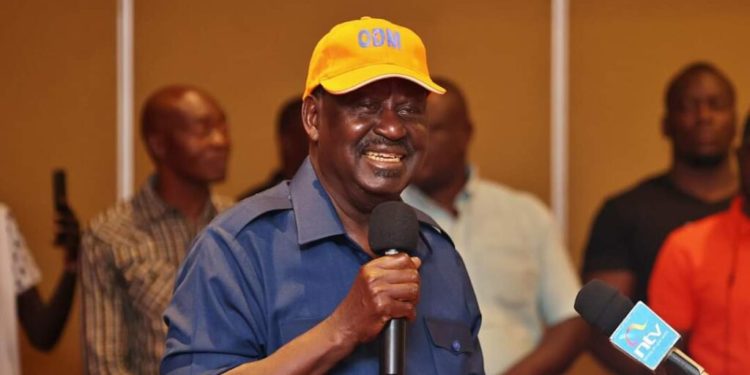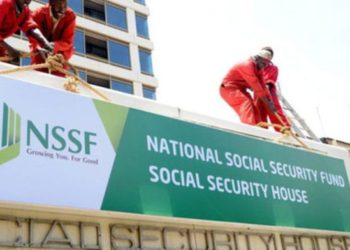Former Kenyan Prime Minister Raila Odinga has expressed his support for the involvement of the Adani Group, a major Indian conglomerate, in Kenya’s infrastructure projects.
Speaking at a press conference on Sunday, October 13, 2024, Odinga highlighted his long-standing acquaintance with the Adani Group, dating back to his tenure as Prime Minister between 2008 and 2013. He revealed that his first encounter with the company occurred during a visit to India, where he was introduced to the group by then-Gujarat Chief Minister, Narendra Modi, who is now the Prime Minister of India.
Odinga recounted that during his visit to India, he was taken on a tour of several significant infrastructure projects spearheaded by the Adani Group. These included a major port, a power plant, a railway line, and an airstrip, all of which were developed on land that had been previously unusable but was transformed by the group into critical infrastructure. “I had the opportunity to see firsthand the transformative projects developed by the Adani Group on what was once a swamp. This company has achieved remarkable feats in infrastructure development,” Odinga said, praising the conglomerate.
One of the key takeaways from Odinga’s remarks was his admiration for Adani’s expansive energy portfolio. He pointed out that the company’s energy output exceeds the combined resources of Kenya, Uganda, and Tanzania, a feat that he believes demonstrates its capability to play a crucial role in enhancing Kenya’s energy infrastructure.
Odinga recalled that back in 2010, the Adani Group had explored the possibility of engaging with Kenya through a Public-Private Partnership (PPP) model. However, at that time, Kenya was still in the early stages of developing a legal and regulatory framework for such partnerships. Today, with Kenya’s PPP framework now in place, Odinga suggested that the time may be ripe for such collaborations to advance the country’s infrastructure goals.
While Odinga stopped short of directly endorsing the Adani Group’s current projects in Kenya, including the proposed rehabilitation of Jomo Kenyatta International Airport (JKIA) and various energy initiatives, he voiced strong support for the broader PPP model. He emphasized the need for these partnerships to be carefully managed to ensure they are beneficial to both investors and the Kenyan people. He called for a balanced approach, where the burdens and rewards of such projects are fairly distributed, and stressed the importance of adhering to local labor laws and ensuring environmental sustainability.
“These ongoing energy and airport projects are a critical test for Kenya. If managed well, they could set us on a path to becoming a competitive player in infrastructure development for years to come,” Odinga remarked.
In his concluding statement, Odinga addressed the concerns that have been raised by sections of the Kenyan public regarding some PPP projects, urging relevant government agencies to take these issues seriously. He warned against allowing public skepticism to drive away foreign investment, which he argued is vital for Kenya’s economic development. “I urge all concerned agencies to address the concerns raised by Kenyans on these projects. We must ensure that we do not spook foreign capital, which is crucial for the growth of our economy,” he concluded.
















